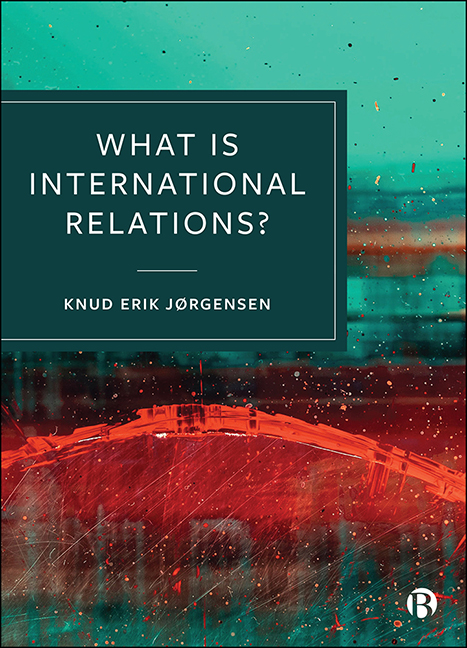Book contents
- Frontmatter
- Contents
- List of Figures, Tables and Box
- List of Abbreviations
- Preface
- Introduction
- 1 What is the Subject Matter?
- 2 What are the Human Sciences?
- 3 What is a Discipline?
- 4 What is Theory?
- 5 What is Disciplinary Diversity?
- 6 What is Community?
- 7 Globalizing International Relations?
- Conclusion
- Notes
- References
- Index
7 - Globalizing International Relations?
Published online by Cambridge University Press: 13 May 2022
- Frontmatter
- Contents
- List of Figures, Tables and Box
- List of Abbreviations
- Preface
- Introduction
- 1 What is the Subject Matter?
- 2 What are the Human Sciences?
- 3 What is a Discipline?
- 4 What is Theory?
- 5 What is Disciplinary Diversity?
- 6 What is Community?
- 7 Globalizing International Relations?
- Conclusion
- Notes
- References
- Index
Summary
Introduction
It is intriguing, almost amusing, to watch how the disciplinary terroiriste have entered the discipline of International Relations in the last few decades, sometimes called just IR, presumably to avoid too much discipline. Terroir and denominazione origine are no longer a domaine resérvé for wine, cheese or foie gras. For the IR terroiriste it matters, and for some matters beyond imagination, in which garden a given theory has grown and which gardener cultivated it. In short, origin matters and, it seems to me, the issue should therefore be part of disciplinary meta-studies. My previous engagements in this distinct field of study have taught me that the relatively small terroiriste community is deeply split, and the label may actually be all that is holding the community together. Given this state of affairs, it is with a mix of reluctance and persistence that I address the impact of terroir, including designations of local and global.
During the last two decades, there have been ever more vocal calls to make the discipline more ‘international’ or ‘global’. This trend builds on the curious idea that IR is a spécialité américaine (Grosser, 1956) or ‘an American social science’ (Hoffman, 1977). Some suggest that IR is under ‘Anglo-American hegemony’ (Holsti, 1985) or, more vaguely, ‘a not so international discipline’ (Waver, 1998). Other observers claim that IR is a Eurocentric or western discipline (Hobson, 2012). In a similar vein, Martin Griffiths and Terry O’Callaghan (2001) think that ‘the idea of a discipline of IR is little more than a thinly disguised parochialism masquerading as a global field of study’ (p. 188), a perspective seemingly shared by Chris Brown (2001), who states that ‘the very idea that one actually needs a discipline of IR may be tied up with a particular worldview’ (p. 218). It is worth noting that the various calls share more than the idea of a more international discipline; they also share a western origin.
In any case, counter-arguments followed. With reference to the Anglo-American hegemony, some were eager to point to pronounced differences between American and British perspectives (Smith, 1985), instead emphasizing American hegemony and thus taking British IR off the hook (Smith, 1996; 2002).
- Type
- Chapter
- Information
- What Is International Relations? , pp. 121 - 138Publisher: Bristol University PressPrint publication year: 2021

